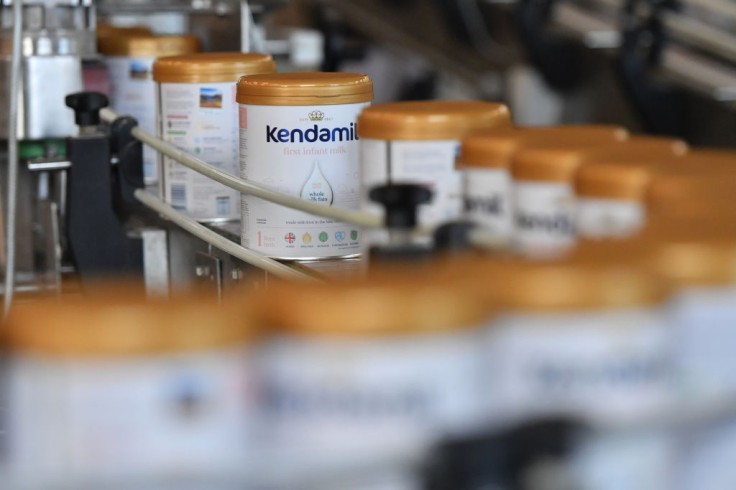
Dozens of international flights carrying baby formula have arrived in the United States, but formula stock rates are still not improving. According to experts, this will take at least a couple of months to change as both consumers' perspectives and supply levels level out.
The White House has committed to importing enough formula to make the equivalent of about 40 million 8-ounce bottles through its Operation Fly Formula program. According to a statement from the U.S. Department of Human Services (HHS), more than a quarter of that supply, enough to make 13 million bottles, has already been delivered as of June 19.
Parents are still worried, though, as according to data shared with CNN by market research firm Information Resources Incorporated (IRI), stock rates for formula in the United States continue to hit new lows.
Stock rates for powder formula even worse in the U.S.
More than 21 percent of formula products (powder, ready-to-drink, and liquid) were out of stock during the week ending June 19, compared with a typical rate of 10 percent before a nationwide infant formula recall by Abbott Nutrition transpired back in February.
Specifically, stock rates for powder formula in the U.S. are even worse. IRI data showed that more than 27 percent of powder formula products were out of stock during the week ending June 19, up from 25 percent the week prior to 23 percent the week before that.
White House spokesperson Kevin Munoz told CNN that their goal remains to ramp up supply and move it to retail shelves and warehouses as quickly as possible. He cited the Operation Fly Formula efforts of the Biden administration along with the ramp-ups afforded by the Defense Protection Act and increased flexibilities from the U.S. Food and Drug Administration (FDA).
The Operation Fly Formula deliveries are not enough, however, to completely replenish formula supply in the country as they cover just a few days of typical sales. The Biden administration is not just watching stock rates, though, as they are also watching formula sales, which jumped 24 percent in late May.
Consumers are likely stockpiling baby formula
The administration reasons that for formula sales to increase that much, it follows that there must be enough supply in the U.S. to support the demand of American consumers.
Experts begged to differ, saying that formula sales are typically very consistent, and this increased demand is evidence that American consumers are likely stockpiling formula, potentially perpetuating the nationwide shortage.
Ram Ganeshan, a professor at William & Mary whose research focuses on supply chain management and logistics strategy, said babies don't need thousands of extra bottles in one month.
Ganeshan guessed that there is a sudden 24 percent increase in demand because people are hearing about the formula shortage and making sure they have enough on their kitchen shelves. He added that they probably are buying more than the usual.
Related Article : Baby Formula Shortage Highlights Huge Benefits of Human Milk Banking